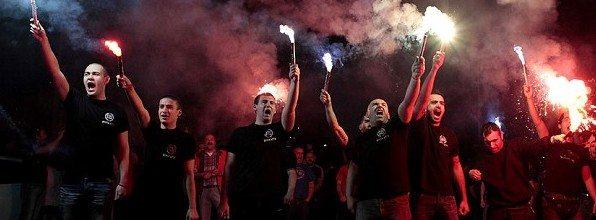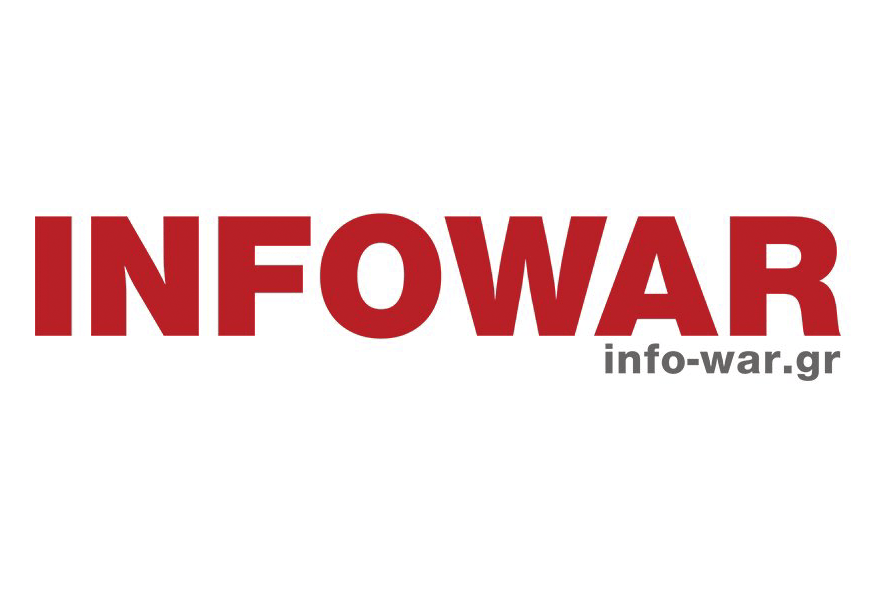Guardian 12/5/2012 – Aris Chatzistefanou
Walter Benjamin once said that “every fascism is an index of a failed revolution”. In that sense, the election of 21 members of the neo-Nazi party Golden Dawn to the Greek parliament could be characterised as the revolutionary failure of the century. Progressive forces in Greece have indisputably been unable to stop the wave of neoliberal austerity measures imposed by the “troika” (the IMF, European Central Bank and EU).
Leftwing politicians and academics predicted the debt crisis and even proposed radical solutions including default and bank nationalisation – but they failed to mobilise Greek society. Their voice was muzzled by the mainstream media, distorted by government officials and, most importantly, nullified by foolish internal antagonisms.
Nevertheless, the frightening revival of fascism in Greece cannot be attributed solely to failures of the anti-memorandum forces. It was the main political parties of Pasok and New Democracy who opened the parliament’s door to rightwing extremism. Their austerity frenzy not only destroyed the main pillars of Greek society but also legitimised deeply undemocratic procedures. The constitution was circumvented several times to allow for non-elected officials to implement policies limiting workers’ rights.
Just a few days before the general election members of the coalition government and the mainstream media orchestrated an all-out racist attack on immigrants. Ministers of public order and health even supported the public humiliation of prostitutes who where found to be HIV-positive. Young girls who were brought as slaves to Greece were transferred in front of TV cameras with handcuffs and hospital masks – as if Aids is transmitted by air.
The Pasok and New Democracy flirtation with far-right extremism didn’t start just before the elections, however. In order to stay in power and implement the catastrophic economic policy of the IMF and ECB, they created a coalition government with Popular Orthodox Rally, or Laos – an extreme rightwing formation that formerly had close relations with Golden Dawn. The technocratic government of Lucas Papademos even distributed ministerial positions to former supporters of the Greek junta while the EU was applauding the “stability” of a non-elected government. Given this attitude, no one was surprised when European policymakers threatened to stop the full transfer of bailout funds while Greece was trying to form a democratic government.
Golden Dawn is also alleged to have close relations with the police. Recent reports have suggested that one in two police officers voted for the party and for several years citizens, journalists and politicians have been condemning its relationship with special riot-control The internet is flooded with pictures and videos of uniformed police working side by side with neo-Nazi thugs throwing stones at demonstrators, union members and even journalists.
Now the pro-memorandum forces are once more presenting the theory of extremes. They are trying to equate neo-Nazism with the anti-bailout movement. In their daily rhetoric the austerity imposed on eurozone members is identified with Europeanism and whoever disagrees with that position is either a populist or a fascist. Once more Golden Dawn becomes a useful tool in the hands of the financial and media elites. What they tend to forget is that it was the extremism of the centre that actively promoted the neo-Nazi nightmare in the political geography.
Nevertheless, the message of the last general election was not the success of far-right formations but an overwhelming rejection of the austerity packages. Parties of the moderate or radical left had their biggest showing in Greek history and for the first time since dictatorship their agendas can be one of governance and not of doomed opposition. Once more it is time for the Greek left to clean up the mess. If it fails, the 21 neo-Nazis in parliament will be the least of our worries.

